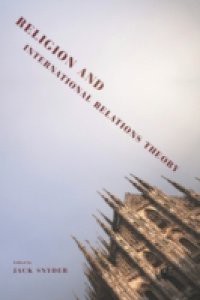Today religious concerns stand at the center of international politics, yet key paradigms in international relations, namely realism, liberalism, and constructivism, barely consider religion in their analysis of political subjects. Whether the issue is Islamic terrorism, the Christian Right's foreign policy predilections toward Israel and Southern Sudan, the complications of faith-based Western activism abroad, the potential destabilization of atheist China by the Dalai Lama and Falun Gong, or the threat Burmese monks pose to Myanmar's military regime, the rising prominence of religion challenges the conceptual frameworks of international relations.Through models that integrate religion into the study of international politics, the essays in this collection offer a guide to updating the field. Authored by leading scholars, these pieces connect religion to a rising form of populist politics in the developing world. Contributors identify religion as pervasive and distinctive, forcing a reframing of IR theory that reinterprets traditional paradigms. For example, Daniel Nexon (Georgetown University) draws on both realism and constructivism in the examination of religious discourse and transnational networks. Elizabeth Hurd (Northwestern University) positions secularism not as the opposite of religion but as a comparable type of worldview drawing on and competing with religious ideas. With the secular state's perceived failure to address popular needs, religion has become a banner for movements demanding a more responsive government. The contributors to this volume recognize this trend and propose structural and theoretical innovations for future innovations in the discipline.

